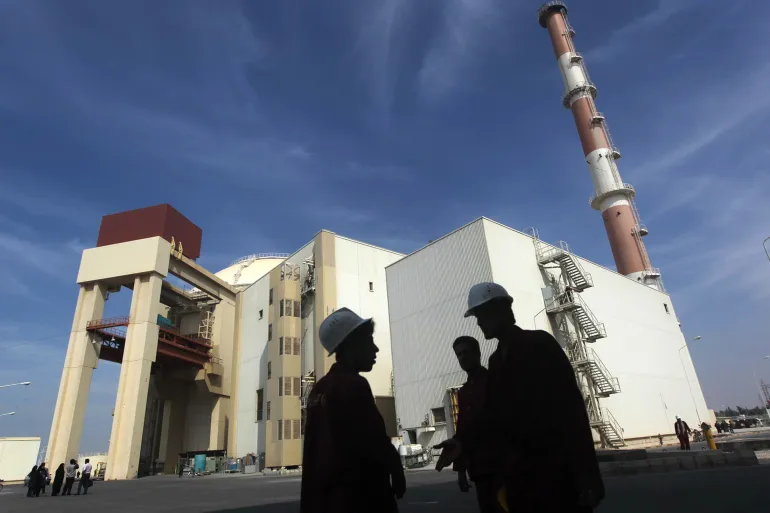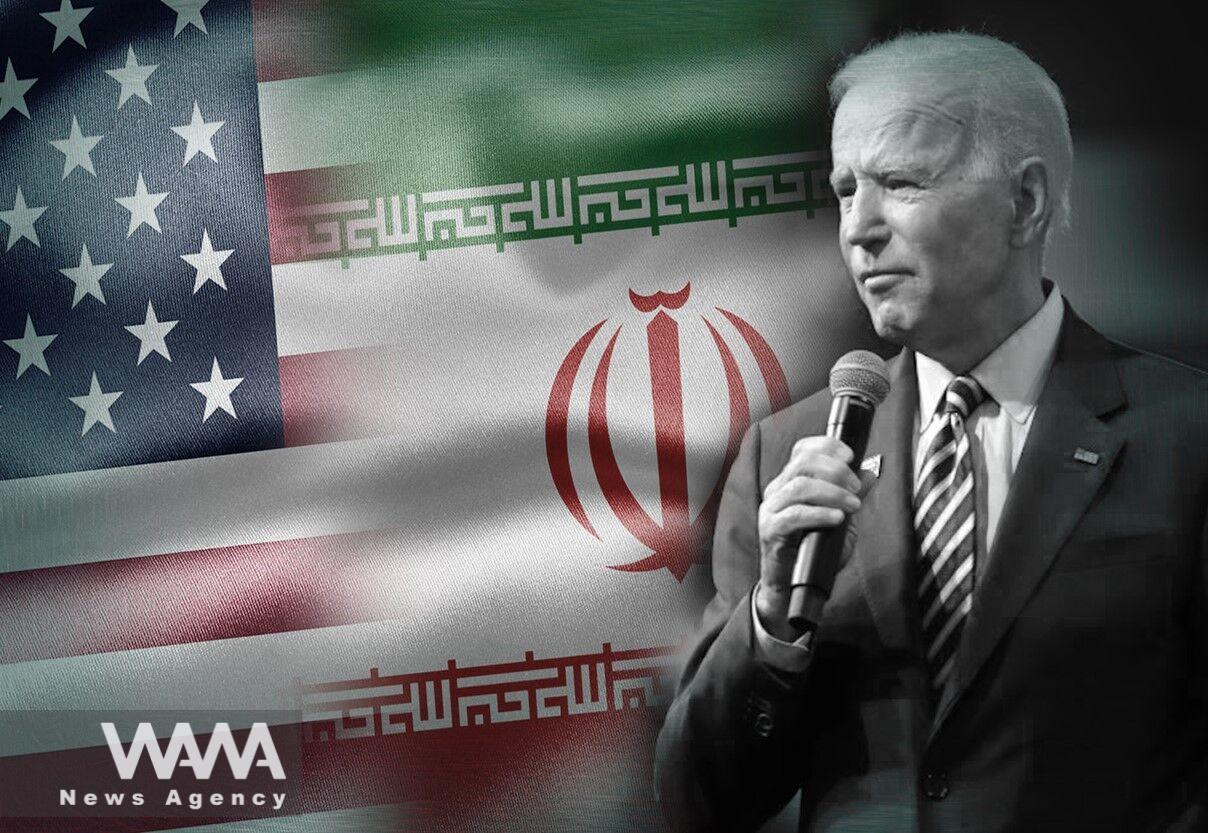Back to the Military Option: Will Iran Yield?
WANA (Jan 11) – Axios reported that some of Biden’s senior advisors believe that the accelerated pace of Iran’s nuclear program, combined with the weakened state of Iran’s government and its proxies, creates both an opportunity and a necessity for potential U.S. military action against Iran.
Recently, Axios, citing three informed sources, reported that U.S. President Joe Biden held a meeting with his national security team about a month ago to discuss scenarios for striking Iran’s nuclear facilities if Tehran approaches nuclear weaponization.
According to a report published by Axios on Thursday, January 2 (13 Dey), this meeting took place about a month ago, during which Jake Sullivan, the White House National Security Advisor, presented various options and scenarios for such an action to the U.S. president.

The reactor building at the Bushehr nuclear power plant. Majid Asgaripour/ WANA News Agency
Sullivan had previously stated last month that there is concern that the Iranian government, weakened by recent developments in the Middle East, “might move toward producing a nuclear bomb.”
Axios noted that the meeting between Biden and his national security team occurred without any fresh intelligence being provided, nor was it intended to reach a final “yes or no” decision.
The report added that the meeting was held solely for planning and reviewing “contingency scenarios.” It aimed to determine the U.S. response should Iran enrich uranium to 90% before Biden’s term ends on January 20.
Natanz #Nuclear Site Defense Drill Kicks Off
The first phase of the joint “Power” exercise in the air defense ring at the Natanz nuclear facility has begun under the command of Iran’s Air Defense Headquarters.
During this phase, the Air Defense units of the IRGC Aerospace Force… pic.twitter.com/huUMDeK91s
— WANA News Agency (@WANAIran) January 7, 2025
Another informed source told Axios that there is currently no active discussion in the White House about a potential military strike on Iran’s nuclear facilities. However, Axios revealed that some of Biden’s senior aides argue that the acceleration of Iran’s nuclear program, coupled with the weakened state of its government and proxies, makes military action by the U.S. both an opportunity and a necessity.
The Wall Street Journal had also previously reported that Trump’s transition team was seriously considering an attack on Iran’s nuclear facilities. According to the report, Trump’s team indicated that plans for such an attack were being reviewed with greater seriousness.
When Israel suggested, following its “Operation Breaking Dawn 2,” that it might target Iran’s nuclear or oil facilities, Trump supported this stance and criticized Biden’s approach of discouraging Israel from pursuing such actions.

Some reports now claim that members of Trump’s transition team are seriously evaluating the possibility of an attack on Iran’s nuclear sites while also discussing other regional scenarios, such as the fall of Assad’s regime, the future of U.S. forces in the region, and potential Israeli strikes on Hezbollah, Hamas, and other partners of the Iran-led resistance axis.
Richard Nephew, often referred to as the architect of Iran sanctions, wrote in Foreign Affairs on January 2 (13 Dey) that Donald Trump should give diplomacy with Iran one last chance while simultaneously preparing for military action.

Revealing Iran’s Strategy: From Western Defeat to Nuclear Weapons Threshold
WANA (Oct 17) – Among the people of Iran, especially those who are less involved in political issues or are opponents of the Islamic Republic, there has always been the question of why Iran should spend its resources to help neighboring countries while it faces economic challenges and needs for growth and development in some […]
Nephew argued, “Given the risks of military action, the United States should, at the start of Trump’s term, make one final, sincere attempt to negotiate to halt Tehran’s nuclear program.” He added, “Caution demands that Washington begin planning for military action now and ensure that Iran takes this threat seriously.” He further warned, “If efforts to reach an agreement fail, the U.S. must be prepared to use military force.”
Nephew recommended that U.S. policymakers should work under the assumption that Iran’s pursuit of nuclear weapons is inevitable and must be managed. He cautioned that there is limited time to prevent reaching this point and urged Washington to consider stringent measures.
First-time release: The 3rd of Khordad missile defense system in the heart of Natanz nuclear facility
IRGC commander, Gen. Salami:
“In recent months, we’ve made significant advancements in air defense. Once again, we needed to test our air defense capabilities in a near-real… pic.twitter.com/mEYiUe3yEr— WANA News Agency (@WANAIran) January 7, 2025
Iranian state media, analyzing these threats, have described them as part of the West’s psychological and propaganda pressure against the country’s nuclear program. Analysts argue that these threats are aimed at disrupting Iran’s scientific and technological advancements but, in practice, would entail significant challenges and heavy costs for the aggressors.
Iran’s Foreign Ministry spokesperson called the American officials’ threats against Iran’s peaceful nuclear facilities a blatant violation of international law and the UN Charter. He emphasized that such actions contravene Resolution 533 of the IAEA Board of Governors and pose a threat to global peace and security. He further stated that these remarks expose the U.S. government’s hypocrisy, as it is already infamous domestically for its incompetence and corruption. Iran reiterated its firm resolve to defend its territorial integrity and national dignity.
In response to the recent military threats against its nuclear facilities, particularly in Natanz, Iran conducted large-scale drills in the region to demonstrate its readiness for potential attacks. This military exercise, which showcased advanced air defense systems, sent a clear message to the world about Iran’s determination and preparedness to safeguard its nuclear facilities amidst escalating threats.

Defense Drill or Preparation for Strike? Behind Iran’s Show of Force
WANA (Jan 08) – Iran’s recent military drill was not merely a training exercise but a clear and strategic message to regional and global adversaries. When Iran’s power is displayed across air, land, and sea, its message transcends geographic borders, signaling preparedness for a decisive future shaped by ongoing regional developments. A Defense Drill […]
Iranian military officials have repeatedly emphasized that the country’s armed forces are at the highest level of readiness to defend its sovereignty and national interests. They warned that any military action against Iran would be met with a decisive and regret-inducing response.
Considering these developments, it appears that the United States is pursuing a dual strategy: applying pressure and issuing military threats on one hand, while leaving room for negotiation to manage the crisis on the other.
But the key question remains: Will Iran yield to these threats, or is a scenario of confrontation closer to reality than anticipated?
This situation can be likened to a high-stakes game of chess on the international stage, where the outcome will not only determine the future of Iran’s nuclear program but also shape the stability of the entire region.













